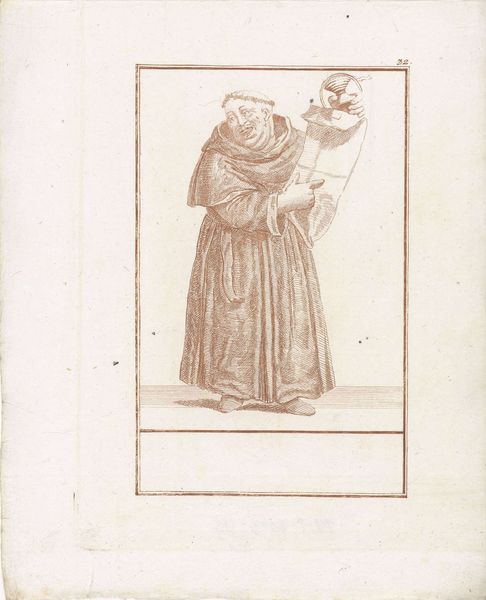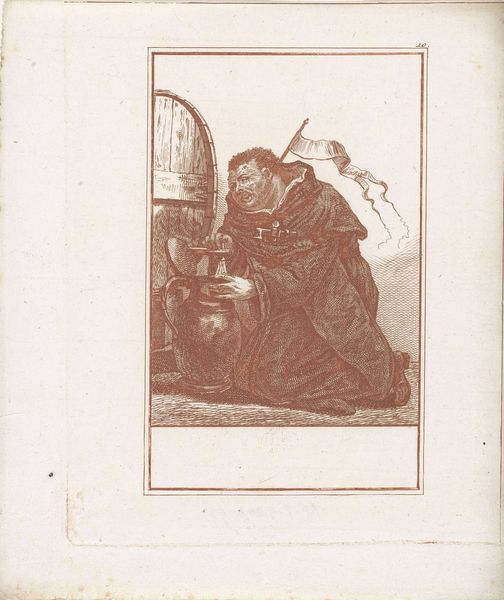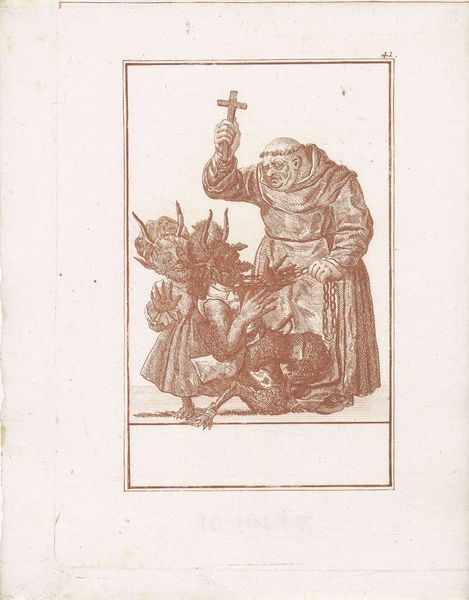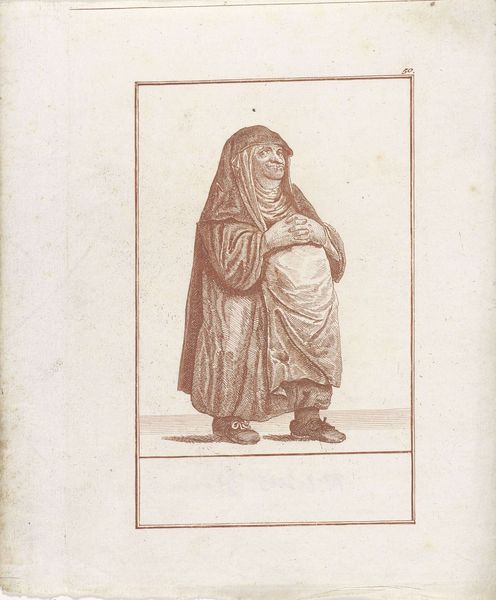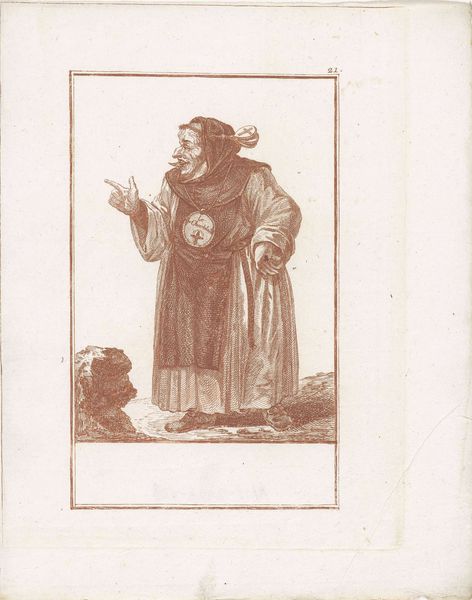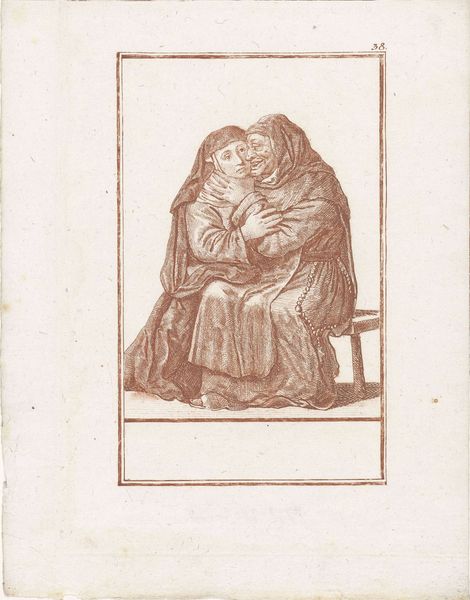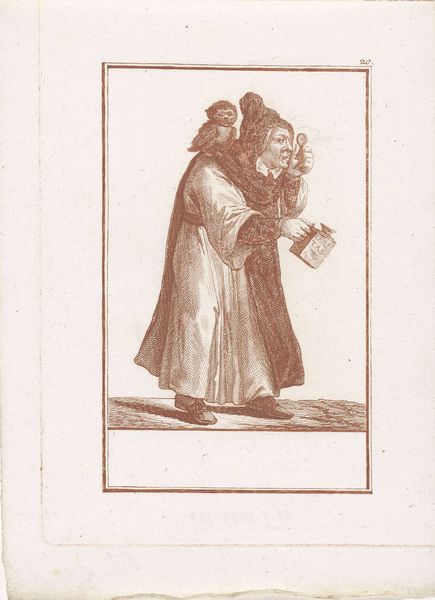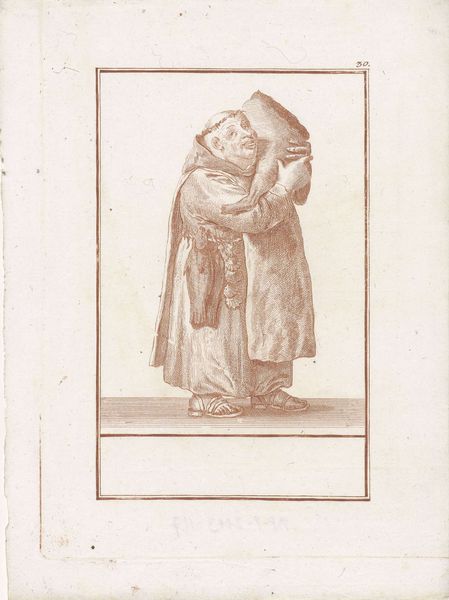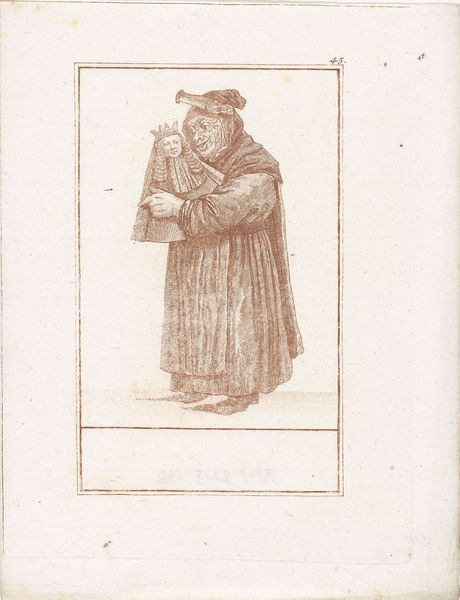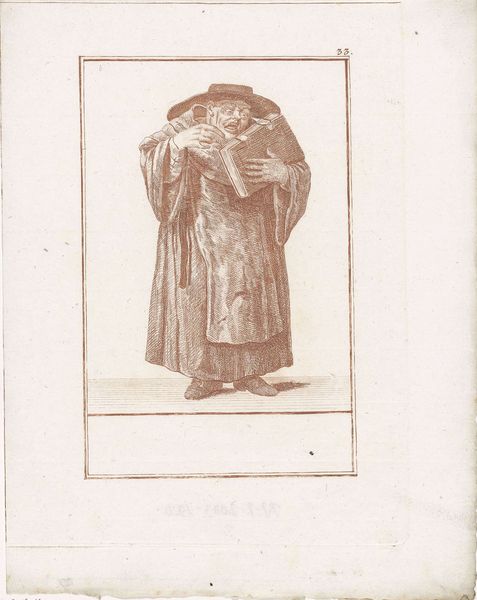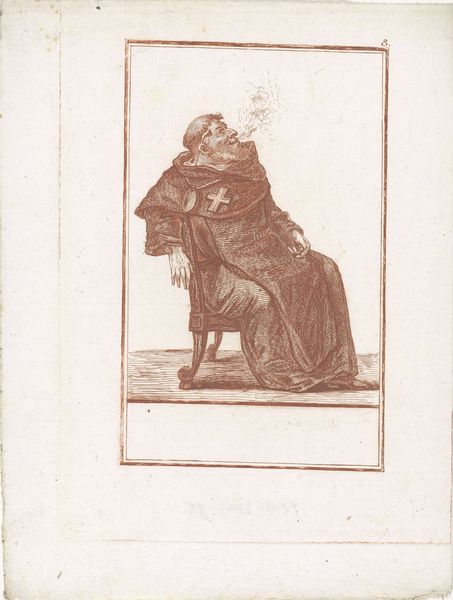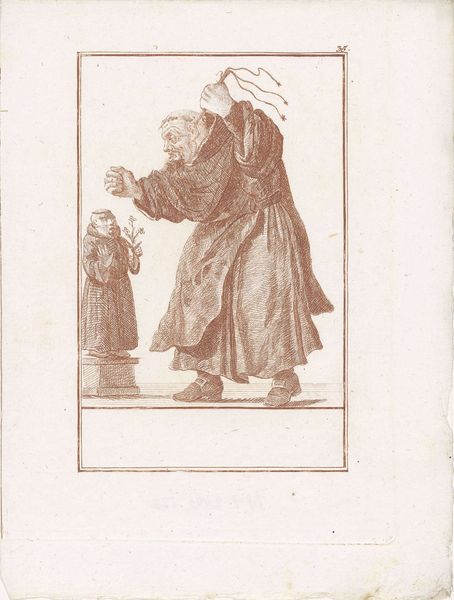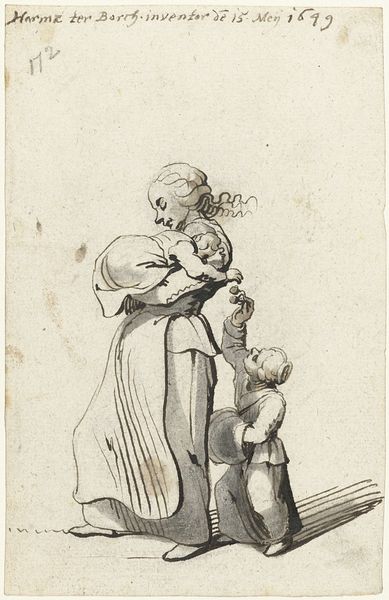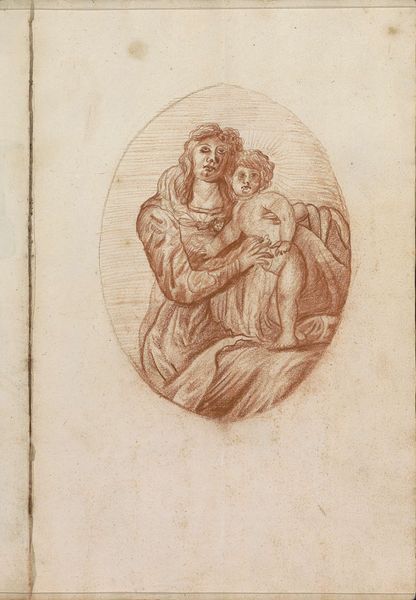
print, etching
#
narrative-art
#
baroque
# print
#
etching
#
figuration
Dimensions: height 238 mm, width 184 mm
Copyright: Rijks Museum: Open Domain
Jacob Gole created this print of a monk threatening a chained man sometime between 1670 and 1724, using etching and engraving. Think about the labor involved in creating this image. Gole would have started with a metal plate, likely copper, carefully coating it with a waxy, acid-resistant ground. He then used a sharp needle to scratch away the ground, exposing the metal beneath, before putting the plate in an acid bath to bite the lines of the design into the metal. This deeply skilled tradition allowed him to achieve fine details and textures, capturing the tension of the scene, from the monk’s menacing stance to the chained man’s desperation. The printmaking process was crucial for disseminating images and ideas in Gole's time, but it also allowed for the development of a distinctive graphic style that blurred the lines between craft, design, and fine art. Looking at the material reality of this print allows us to appreciate the work's wider social and cultural significance, and how these distinctions were negotiated.
Comments
No comments
Be the first to comment and join the conversation on the ultimate creative platform.
